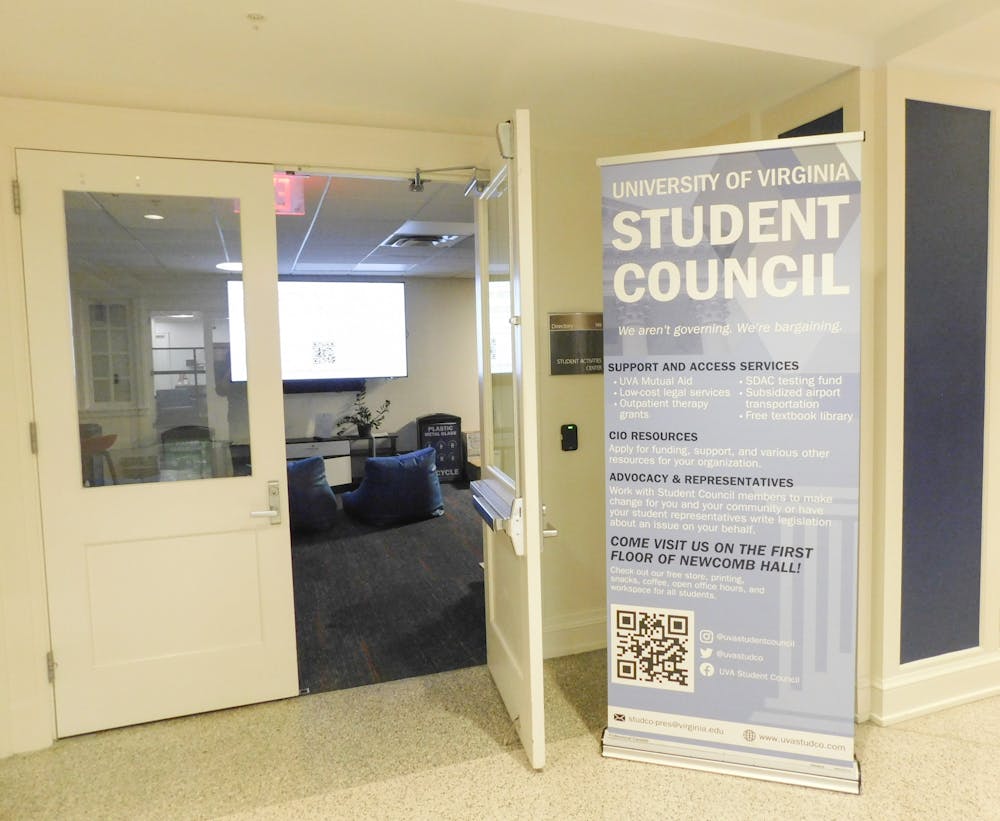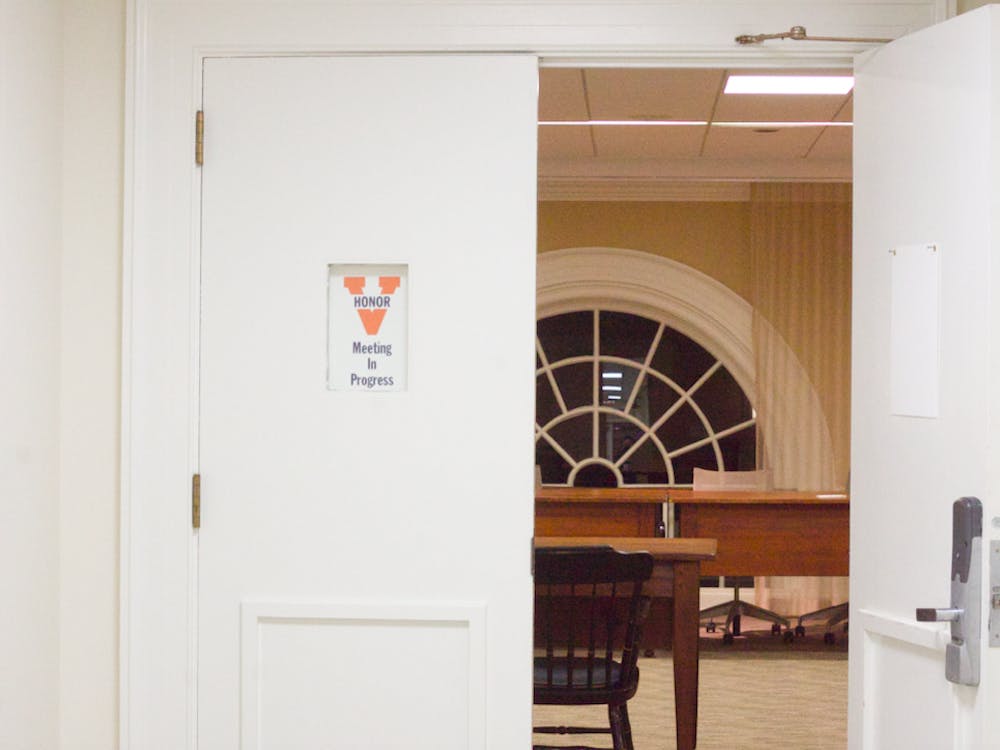In the student elections of 1979, third-year history major John S. Serpe ran for the office of Student Council president, one of the most influential student leadership positions on Grounds. Luckily for Serpe, he was the only candidate on the ballot, making his unopposed campaign a mere formality — a march to victory before his inevitable ascension into office.
Or at least that’s what everyone thought until the results of the election were released, revealing that he was defeated 1,743 to 1,688 by a write-in candidate, “Howard the Duck.”
The 1979 election serves as a humorous glimpse into the lack of weight that student elections have for many University students. Although Student Council and the other institutions of student self-governance — like the Honor Committee and the University Judiciary Committee — have come a long way since the student elections in 1979, and voter turnout is slowly improving, apathy toward student elections is alive and well. The University should take steps to combat this apathy by creating infrastructure that teaches new students about the importance of student self-governance.
The results of the most recent student elections tell us that students are apathetic at best towards student elections. Many important posts within student-self governance organizations were on the ballot, but most positions up for election had less than 10 percent turnout. Though offices with a wider scope — such as those positions representing all students of a specific year — generally received higher turnout, the vast majority of eligible students still failed to vote in these elections. Maybe more shocking is the fact that students do not even turn out for extremely consequential ballot measures like last semester's Honor referendum — which introduced the Committee’s first ever multi-sanction system — with only 24 percent of eligible students casting a ballot.
Let that sink in. The biggest change ever to the University’s Honor system — a defining feature of our institution — was implemented with input from less than a quarter of the student body. There is an undeniable connection between the quality of our institutions of student self-governance and the efficacy of the education the University is able to offer. For this reason, University administrators must ensure students are given the resources necessary to effectively engage with the tradition of student self-governance from the moment we matriculate — and effective engagement requires that, at the very least, we show up and vote in student elections.
Perhaps part of the problem is that many students are inclined to believe that there is no reason to cast a ballot, other than if their friend is running. These students fail to realize that they are also casting a vote for student self-governance with every ballot, and voting for members of institutions which have made significant, impactful changes throughout recent years — exemplified by sweeping reforms to the Honor system and past initiatives such as Student Council’s role in the construction of Clemons Library. The impact of student leadership can be seen in everything from the distribution of COVID-19 tests to making textbooks more accessible for low-income students. Student self-governance is a long standing pillar of this institution, and is a part of what makes being a student at the University unique.
While there have been surface-level efforts to motivate participation in student elections, offering a t-shirt or a sticker is not enough to create — nor maintain — the kind of voter turnout that is needed to make these elections, and student self-governance more broadly, effective. First-year students in the College of Arts and Sciences are already required to participate in certain events outside of the classroom — such as guest events or advising meetings, as part of the Engagements Experience portion of the College’s curriculum.
First-year students should similarly be required to participate in an educational session on student self-governance — exploring the processes and goals of UJC, the Honor Committee and Student Council — and be required to vote in such elections in their first year. This process could also have an academic component in which students are asked to reflect on a specific area of policy within one of these institutions to promote more critical engagement with the work these organizations are doing.
This solution will not merely increase voter turnout by ensuring first years cast ballots, it will help create a culture wherein students are informed about what is happening around Grounds and recognize the potential that student self-governance has to positively impact their educational experience. By providing a structured framework within which students can learn about the importance of engaging meaningfully with institutions like Honor and UJC, the University will make students more careful voters, empowering these institutions to make decisions that truly reflect the interests of the entire student population.
Student Council, UJC and the Honor Committee are not always involved in the hot-button issues — like foreign policy or health care reform — which so frequently occupy our minds or social media feeds. These institutions instead carry a different sort of significance to University students — they are the most direct reflection of our ability to steer the University in the direction that we students think is best. These institutions are how we mold our University experience by holding the University accountable to the values it claims to stand for. Students should never take this voice for granted.
Viet Huynh is a Viewpoint Writer who writes about Student Self-Governance for The Cavalier Daily. He can be reached at opinion@cavalierdaily.com.






